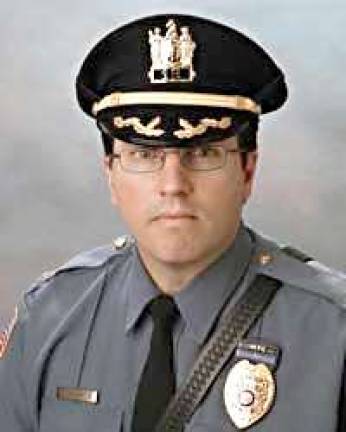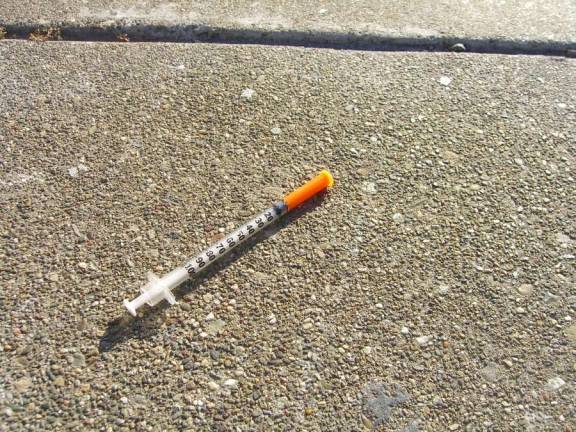C.L.E.A.R. program tackling drug addiction in Sussex County


BY ERIKA NORTON
NEWTON - Last year, the Sussex County area had 32 overdose deaths due to heroin, prescription medications and other drugs, according to the Sussex County Community Law Enforcement Addiction Recovery Program. This number is up from 25 overdose deaths in 2015.
After seeing the rise in drug addiction countywide, in November of 2015, Newton Police Chief Michael Richards and others decided the county needed a comprehensive plan to address the growing problem. They decided to form the C.L.E.A.R. Program, a collaborative network of local professionals aiming to facilitate medical intervention and improve access to treatment and recovery support for those struggling with drug addiction without fear of arrest or prosecution.
“It’s improved communications and collaboration between the Center for Prevention and Counseling, the police departments, social service agencies and the hospital,” Richards said, “because a lot of times, we’re each doing our own thing, and when we can learn a little bit more about what each other provides, we can lean on each other and make better referrals. I think we just generally have a better way of tackling the problem together.”
As part of the program, Richards said anyone can come into a participating police station and voluntarily surrender any drugs or paraphernalia they have without being arrested, allowing the police to then connect them with the help their seeking.
And they are seeing results. So far, 89 percent of the people who have come in so far received treatment, according to Richards.
Recovery coachesAn essential part of the program is connecting those seeking help with recovery coaches, which are certified volunteers who are in long-term recovery from substance use disorders themselves, and can guide and mentor those seeking recovery through peer-to-peer support.
“A recovery coach has been in that situation, so they have credibility and they can help guide someone towards recovery better than anyone else,” Richards said. “They’re much more believable and studies have found that it’s much more effective. And I think that that’s really, above anything else — the working together and increasing access — the recovery coaches are really key.”
There’s been times where somebody is at the hospital for a drug overdose, Richards said, and they don’t have insurance and there’s no options for them to go into a detox or into some type of treatment facility, but through the program, They can be transported down to the Center for Prevention and Counseling and meet with a recovery coach that can work towards figuring out a way to get some sort of treatment.
There are also family recovery coaches, who can help those affected by a loved one’s substance use disorder, offering services to friends and family members to help them maintain a positive trajectory for themselves as well as for their loved one.
For example, parents of a child with a drug addiction problem can talk to somebody else who’s been in their situation and help guide them.
“You know there’s things like ‘tough love’ and ‘you’ve got to let them hit rock bottom first’ and these types of things you’ve probably heard of — family coaches know what really has worked.” Richards said. “Or they might be able to say, these are your options, these are some things that have worked for other people and help them guide their child or relative toward recovery rather than doing behaviors that actually are just enabling them to continue.”
C.L.E.A.R. in 2017Right now, Richards said people are essentially only being screened at one location and when they hopefully get the entire county onboard and all the officers trained, he thinks that will really improve the program’s outreach efforts and encourage more people to come forward seeking help. He also said that in the coming months, the plan to have recovery coaches that will visit people in hospital.
Since the program was started through a donation from the Atlantic Health System to pay for a number of our coaches to go through training, they are also looking at funding options, Richards said, mainly through fundraising and state and/or federal grants. Additional funds would be used for providing transportation to treatment centers for those who don’t have insurance and for a paid recovery coach coordinator position, a position right now being done through the Center for Prevention and Counseling.
“I think that this program is definitely in a position to hopefully make a real meaningful impact in the quality of life here in Sussex County because there’s so much associated with it — criminal activity as well as negative effects on families as well as employers and businesses,” Richards said. “In so many different ways, the negative effect that drug addiction has on so many aspects in our lives, so I think it will really make a huge difference as we get this expanded out further.”
To donate or to find out more about the C.L.E.A.R. Program, visit www.clearprogram.org or call 1-844-SC-CLEAR.